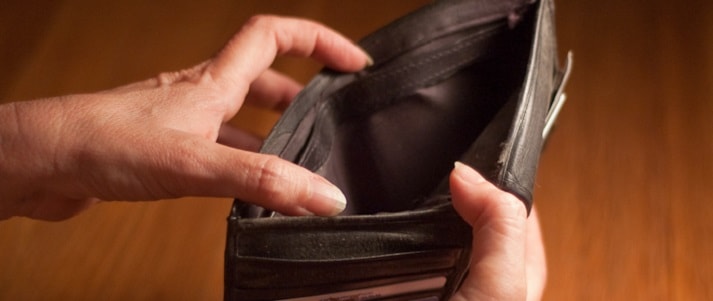Young people plunging into debt to pay for basic living costs
A top financial regulator has warned that young people are borrowing more and more money just to cover basic living costs.

Young people are seeing their debts spiral as they struggle to fund even the most basic of living costs.
Recently we've reported on the increasing desperation of students who find themselves seriously short of cash. From payday loans to avoid substandard accommodation, to adult work to make ends meet, nothing seems to be off the table.
The issue has now caught the attention of financial regulators, who have gone public with their concerns over the level of debt among young people.
Andrew Bailey, chief executive of the Financial Conduct Authority, said that while the debt isn't yet at crisis levels, it is worrying that the figure is growing to fund "essential living costs".
Speaking to the BBC, he added:
We should not think this is reckless borrowing. This is directed at essential living costs. It is not credit in the classic sense, it is [about] the affordability of basic living in many cases.
Why is the situation getting worse?
 Credit: Hamza Butt - Flickr
Credit: Hamza Butt - Flickr
Young people get a lot of slack for supposedly being too careless with their cash, with many being told that they simply need to manage their money more carefully in order to live the life that their parents did.
While we agree that most people could do with learning a few money saving tricks, the reality is that previous generations really did have it better.
Mr Bailey said:
There has been a clear shift in the generational pattern of wealth and income, and that translates into a greater indebtedness at a younger age.
That reflects lower levels of real income, lower levels of asset ownership. There are quite different generational experiences.
He also pointed to the high price of renting and the lack of income growth as additional factors in people resorting to credit to make ends meet.
In fact, statistics show that in the early 1980s, average house prices were less than three times the average salary. Today, the average house costs around six times as much as the average salary.
Just how bad is it for young people?
 Credit: NoHoDamon - Flickr
Credit: NoHoDamon - Flickr
When an individual or business lacks the necessary funds to repay their debts, they are said to be insolvent. According to the Insolvency Service, the number of 18–34 year olds becoming insolvent increased by almost a third (31.3%) between 2015 and 2016.
But that's not all. Last month, Citizens Advice reported a 34% rise in the number of under-25s seeking help with high credit costs in the last two years.
What's more, with rent prices in London at sky-high levels, Countrywide (a UK-wide lettings network) has estimated that 65,000 tenants left the capital in the last 12 months – the highest figure since their records began in 2007.
And on the topic of housing, the proportion of young people living with their parents is also depressingly large. Approximately 4.5 million 18–34 year olds still live in their parental home, which works out to be around 30% of all people in that age group.
How can you avoid sliding into debt?
 Credit: Hamza Butt - Flickr
Credit: Hamza Butt - Flickr
There's no denying that students have a bit of rough deal when it comes to living costs. After all, the government reduces your maintenance loan based on household income and expects your parents to contribute up to £5,523 every year to make up the difference.
Even as a graduate, stunted wage growth and an increased cost in living means that you could still be left with very little to work with. However, there are some ways to help keep your head above water.
First and foremost, you should make sure that you understand just what debt is, as well as its dangers and the different forms it can come in. Secondly, avoid payday loans at all costs!
If you find yourself desperately needing some extra money, have a read through our ways to make money quickly.
Still in need of some cash? Check out our guide to the best student credit cards. This does involve borrowing money, but the interest rate will be much lower (often 0% for several weeks or months) than you'd get with a typical credit card.
Check out our section on saving money for more help with avoiding debt.








